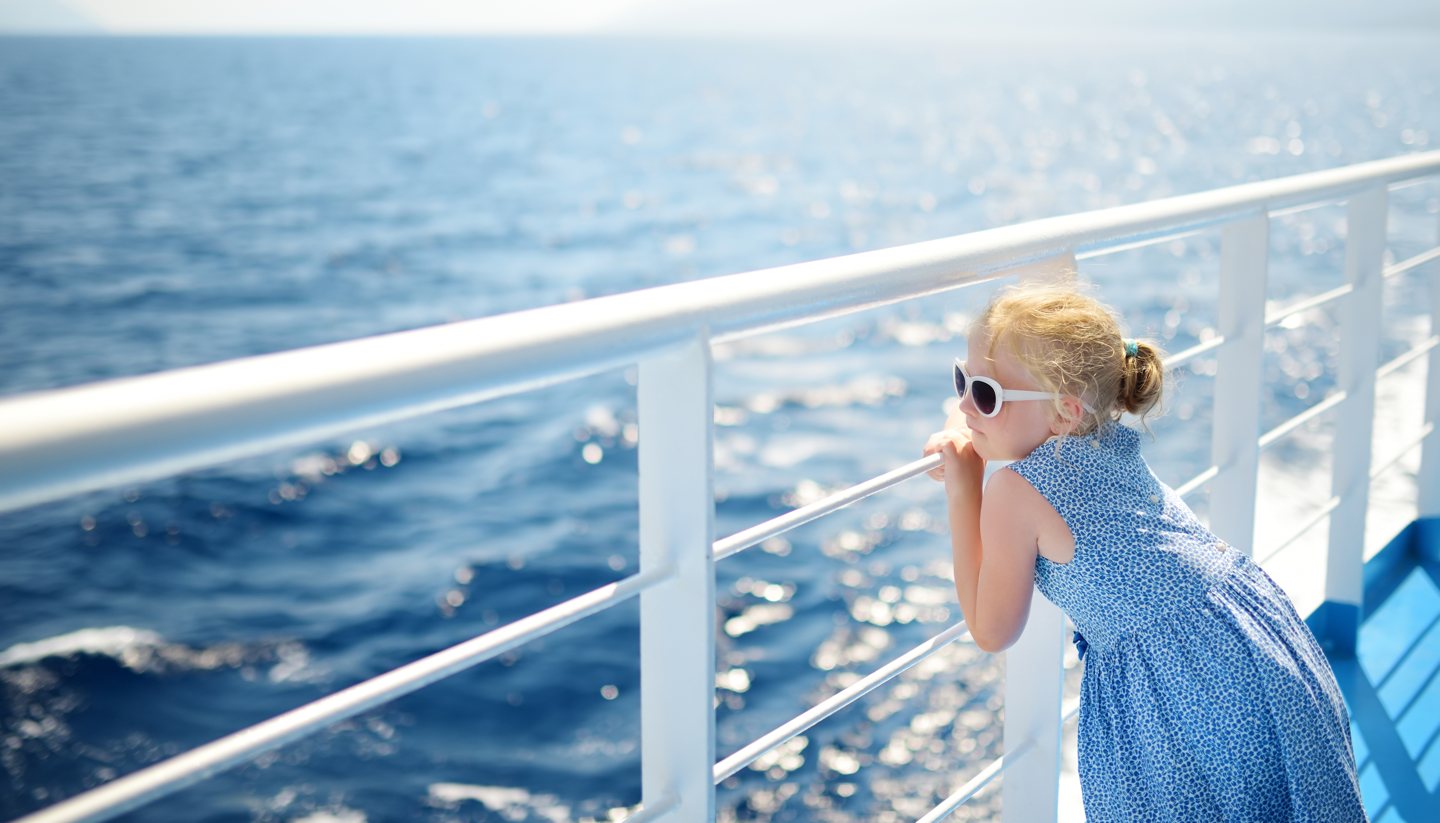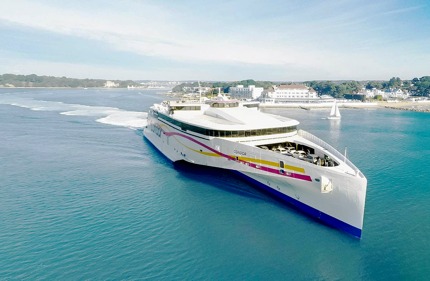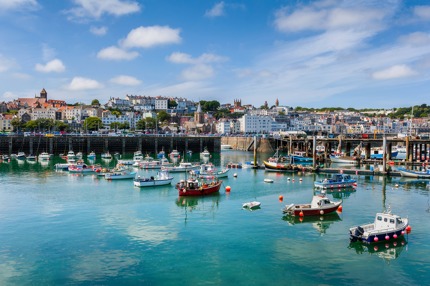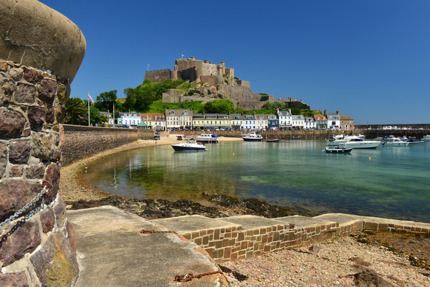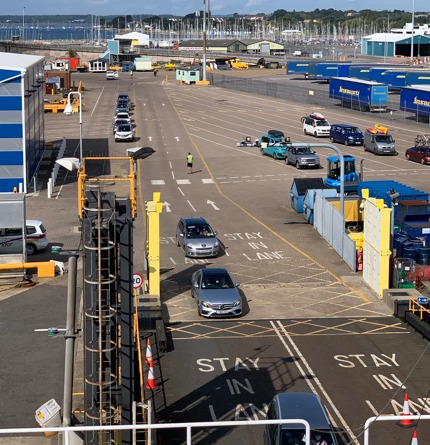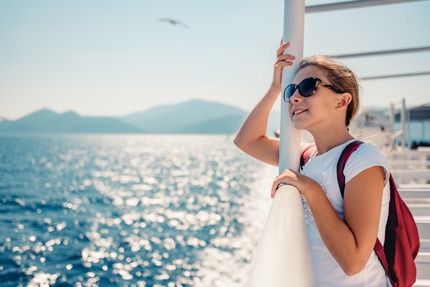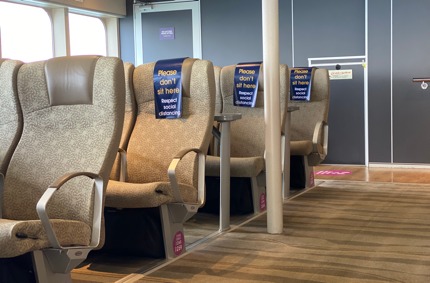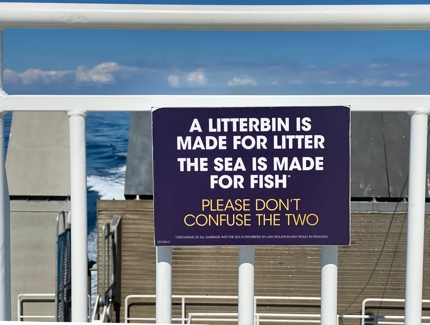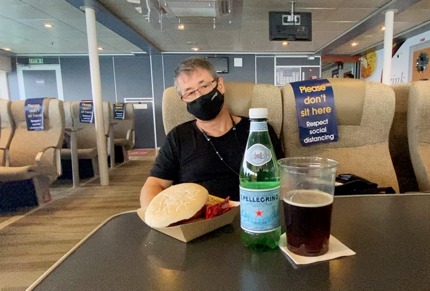Travel safely and reduce your carbon footprint to the Channel Islands from England and France with Condor Ferries
With aviation CO2 emissions becoming a pressing issue in recent years, more travellers are seeking for viable alternatives. Enquiries for rail holidays have gone up, but ferry travel has remained under the radar despite it being more environmentally friendly than air travel. At World Travel Guide, we think it is time to give the convenience of ferry holidays a shout. In this article, we will look at using Condor Ferries which runs from Poole and Portsmouth in England to two of the Channel Islands (Jersey and Guernsey). Condor also operates a service from St Malo in France to the same destinations.
From the UK to Jersey and Guernsey
The coastal city of Poole in the county of Dorset is the main UK port for Condor Ferries to Jersey and Guernsey, two of the largest Channel Islands.
Travelling at 35-40 knots, the high-speed Condor Liberation ferry takes just 3 hours from Poole to Guernsey and slightly more to Jersey which is further south. The ship can carry 850 passengers and 250 cars. There are three classes of cabin (Club Class, Horizon Lounge and Ocean Traveller), along with a duty-free shop, bar and self-service restaurant.
Condor also operates another ferry service from Portsmouth, a port in Hampshire in England, to Guernsey and Jersey. Running a ro-pax conventional ferry, the journey is slightly slower, taking 5 hours from Portsmouth to Guernsey and 6-and-a-half hours to Jersey. The ship, Commodore Clipper, carries a mixture of passengers and freight and operates day and night services. When taking the overnight service, passengers can book the sleeping cabins to rest.
From France to Jersey and Guernsey
The ancient city St Malo in Brittany, France, was once the haven for pirates, many of them were feared by seafarers crossing the English Channel. Today, St Malo is a quaint seaside resort that mixes culture and leisure effortlessly.
Condor runs a year-round St Malo to Jersey service and a seasonal St Malo to Guernsey service. The ship, Condor Rapide, has space for 741 passengers and 175 cars. The journey to Jersey only takes 1 hour and 25 minutes.
Before you go, check out:
Top five benefits of ferry travel
1. Take your car with you
The best thing about taking a ferry is you can take your car with you. Taking your car means you can pack as much as you want – fit in extra luggage, take your bike, surfboard, hiking boots, fishing gear, anything from swimwear to dinner attire, as well as giant bottles of shampoo and suntan lotion. Once you’re in Jersey or Guernsey, you’re free to drive around the island and explore to your heart’s content.
2. No airport security
Many of us have encountered the less than pleasant airport security – even if you have been extremely lucky and have managed to avoid any distressing ordeal so far, a search online will probably overwhelm you with airport security nightmares shared by global travellers. Thankfully, travelling with Condor Ferries means you can leave the nightmares behind.
There is no need to separate liquid and powder, or keep your electronic items loose so you can take them out quickly. You also don’t have to remove coats and shoes in short notices.
3. Stretch your legs
Taking your car with you doesn’t mean that you will be confined to your car seat the entire ferry journey. On the contrary, for safety reason you must leave your car and take a seat in the main lounge, enjoying ocean views. Keep your eyes peeled too, as you may spot porpoises playing and surfacing for a breath of air.
Travellers can also enjoy the fresh air by going to the viewing areas outside or the helipad deck.
4. A more relaxing travel experience
Ferry travel is widely regarded as more relaxed in comparison to plane travel, especially in recent years as airlines rush to pack as many seats as they can to increase capacity, neglecting passenger comfort. Unless you pay extra for first or business class, travelling on economy class leaves you with little space to move.
Ferry, on the other hand, remains spacious. Each Condor ferry has a dedicated play zone (which is shut during the pandemic, unfortunately), duty-free shop, self-service restaurant, along with seats with tables and wider access paths. It is easy to see why families with young children and disabled individuals particularly like using ferries.
5. Wi-Fi is available
Continue to stream your music or keep yourself connected by purchasing the Wi-Fi onboard. Condor Ferries sells two options: 200MB or 500MP, costing £9.99 or £19.99.
Are ferries less expensive and a greener mode of transport?
Working in the travel industry, our writers are conscious about costs as well as the carbon footprint of mass tourism. So we randomly select two dates in October and compare the journey costs and carbon emissions. We also assume that the travellers are a couple from London with a standard Ford Fiesta which runs on petrol but is relatively fuel-efficient.
The first scenario is the couple driving from London to Poole and catching a ferry to Jersey, leaving on 16 Oct (Friday) and returning on 23 Oct (Friday), the total cost with Condor Ferries is £305. The petrol cost for the round trip is about £18. When it comes to carbon footprint, a search online indicates the return journey with a blend of car and ferry will emit 0.142 tonnes of CO2.
The second scenario involves the couple flying with easyJet from Gatwick to Jersey on the same dates. The airfares could be as low as £117.96 (travelling at odd hours) or £224.96 (travelling at normal hours) – but the fees exclude seat selection and any check-in luggage. On top of that, train travel (excluding tube) to London to Gatwick will add around £48 – more if you are travelling at odd hours. In terms of carbon footprint, this round trip with a combination of train and plane will emit 0.47 tonnes of CO2, approximately three and a half times worse than ferry.
It is worth mentioning that air passengers are likely to rent a car upon arrival, which will incur further £126 to £300 – the cheapest option is a two-door Fiat 500 from one of the comparison sites but it can rise to £300 for a four-door sedan from a reputable brand. If you’re travelling with Condor Ferries and taking your car with you, then you’ll certainly spend less than air travel, plus the convenience of having your own wheels is hard to match.
Green initiatives
With the impact of climate change felt in every corner of the world, considerate individuals and companies have taken steps to reduce the impact and protect our world. While the war on plastic has largely being derailed by the COVID-19 pandemic, programs like waste management and fuel-efficiency should still be embraced.
At Condor Ferries, they have switched to ‘vegware’ instead of single-use plastic. Passengers can also refill their water bottles at the food/ bar services on board – understandably, this practice is not allowed during the pandemic. In addition, the company has strict policies in place on water management, waste management, and the use of low sulphur fuel on its fleet, among others.
Safety measures during the COVID-19 pandemic
During this COVID-19 pandemic, Condor Ferries has chosen to reduce the number of passengers to half across the entire fleet. This is to make sure that passengers and staff can maintain social distancing while on board. On the contrary, some flights are still operating at full capacity with passengers packed like sardines in a tin.
Other precautionary measures introduced by Condor Ferries include:
- Hand sanitiser dispensers are strategically placed throughout the ship.
- All purchases on board are cash-free.
- Staff come to collect passengers if they want to visit the duty-free shop.
- All passengers over aged 11 must wear a face covering.
About Condor Ferries
Condor Ferries began life in 1964 with a passenger service between France and the Channel Islands. In 1987, the first service linking the Channel Islands and the UK was launched. Today, Condor provides a vital link between the Channel Islands and the UK. Apart from taking holidaymakers to the Channel Islands, Condor carries over 100,000 freight vehicles and handling thousands of tonnes of fresh and frozen produce among these destinations per year. Visit condorferries.co.uk for more information.
